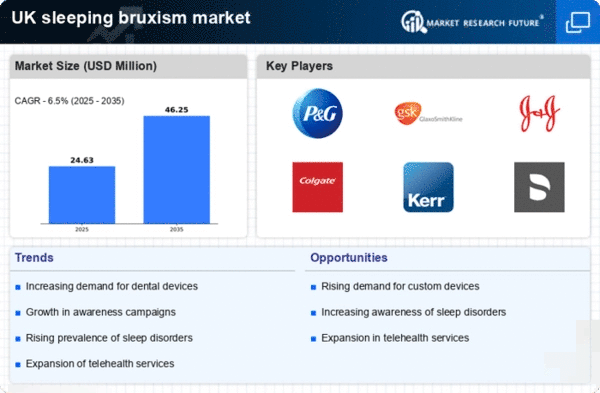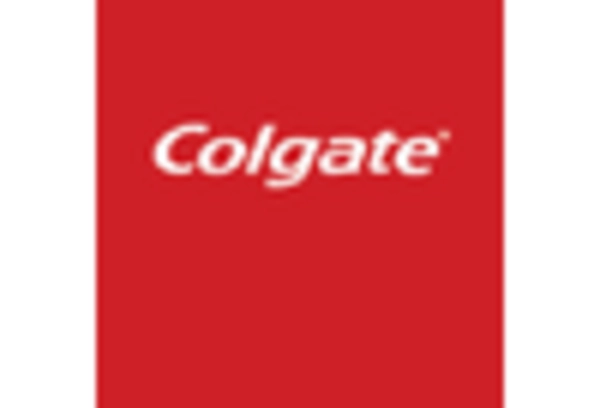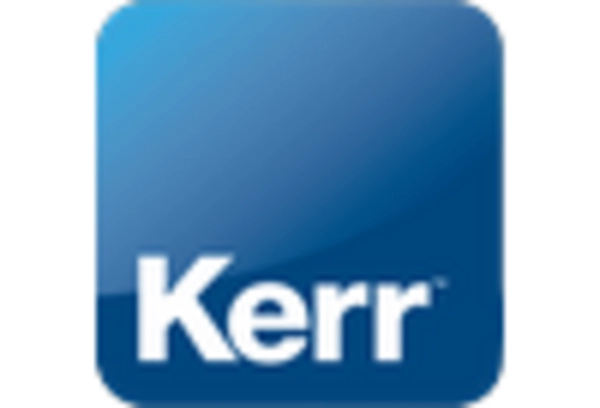Rising Stress Levels in Society
The escalating stress levels in the UK population are contributing to the growth of the sleeping bruxism-treatment market. Stress is a well-documented trigger for bruxism, and as societal pressures continue to mount, more individuals are likely to experience this condition. The correlation between stress and bruxism has prompted healthcare professionals to address the issue more proactively. Consequently, there is an increasing demand for treatments that not only alleviate the symptoms of bruxism but also address the underlying causes, such as stress management techniques. This trend is expected to bolster the sleeping bruxism-treatment market as more comprehensive treatment options become available.
Growing Awareness of Oral Health
There is a notable increase in public awareness regarding oral health in the UK, which is positively influencing the sleeping bruxism-treatment market. Campaigns promoting dental hygiene and the importance of addressing sleep-related disorders have led to more individuals recognizing the symptoms of bruxism. As a result, patients are more inclined to seek professional help, thereby driving market growth. The sleeping bruxism-treatment market is likely to benefit from this trend, as dental practitioners are increasingly incorporating bruxism assessments into routine check-ups. This heightened awareness is expected to lead to a greater demand for effective treatment solutions.
Increasing Prevalence of Bruxism
The rising incidence of bruxism in the UK is a notable driver for the sleeping bruxism-treatment market. Studies indicate that approximately 8-10% of adults experience bruxism, with a significant portion occurring during sleep. This prevalence is likely to escalate due to factors such as stress and anxiety, which are increasingly common in modern society. As awareness of the condition grows, more individuals are seeking treatment options, thereby expanding the market. The sleeping bruxism-treatment market is projected to grow as healthcare providers enhance their focus on diagnosing and managing this condition, leading to increased demand for various treatment modalities.
Advancements in Dental Technology
Technological innovations in dental care are transforming the sleeping bruxism-treatment market. The introduction of custom-fitted mouthguards and splints, which are designed using advanced imaging techniques, has improved treatment efficacy. Furthermore, the development of biofeedback devices that monitor muscle activity during sleep is gaining traction. These advancements not only enhance patient comfort but also improve treatment outcomes. The market is expected to witness a surge in demand for these innovative solutions, as patients increasingly prefer effective and non-invasive treatment options. The integration of technology into treatment protocols is likely to drive growth in the sleeping bruxism-treatment market.
Increased Focus on Preventive Healthcare
The shift towards preventive healthcare in the UK is significantly impacting the sleeping bruxism-treatment market. Patients and healthcare providers are increasingly prioritizing prevention over treatment, leading to a greater emphasis on early diagnosis and intervention for bruxism. This proactive approach encourages individuals to seek treatment before the condition exacerbates, thereby expanding the market. The sleeping bruxism-treatment market is likely to see growth as dental professionals incorporate preventive strategies into their practice, such as regular screenings and patient education on bruxism. This focus on prevention is expected to enhance patient outcomes and drive market expansion.
















